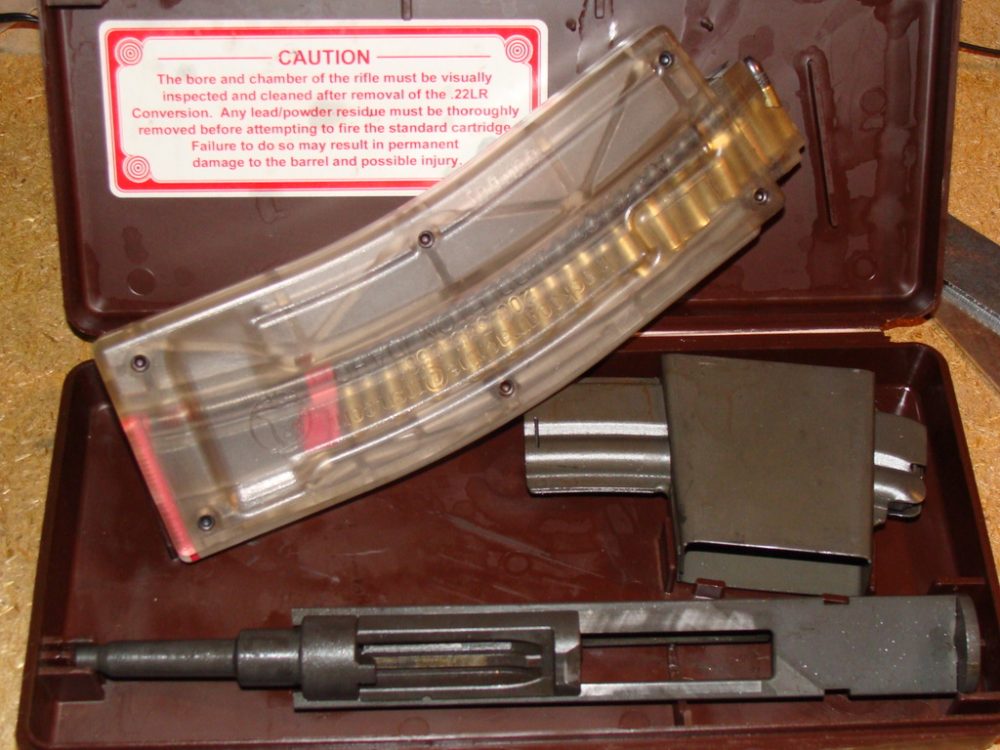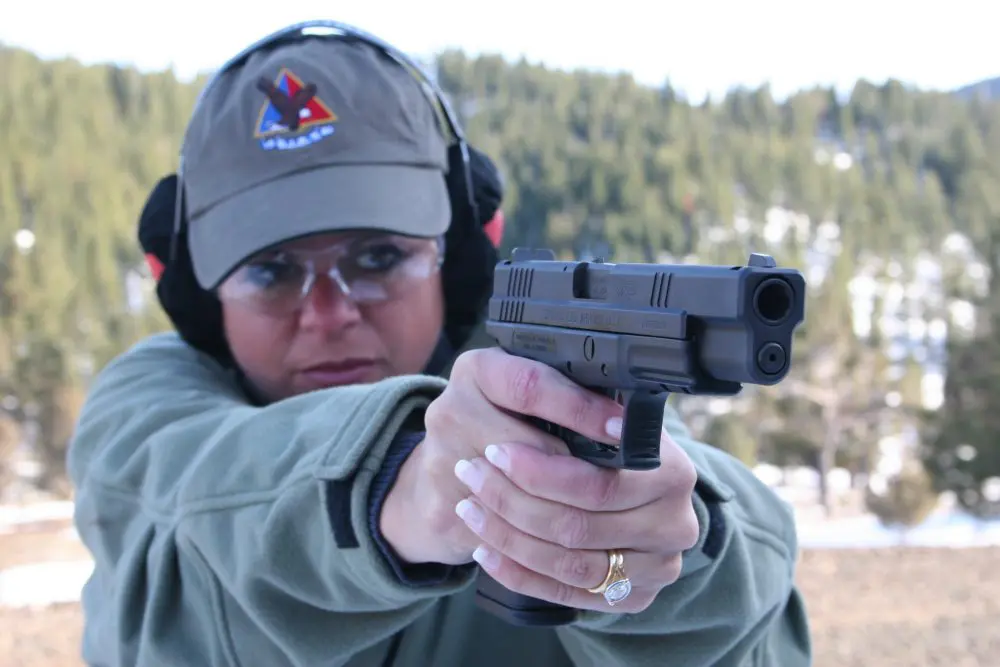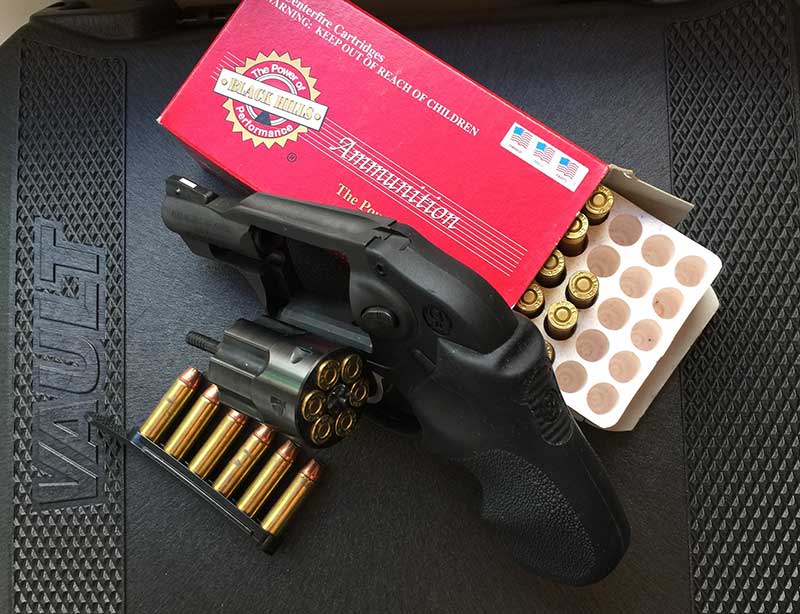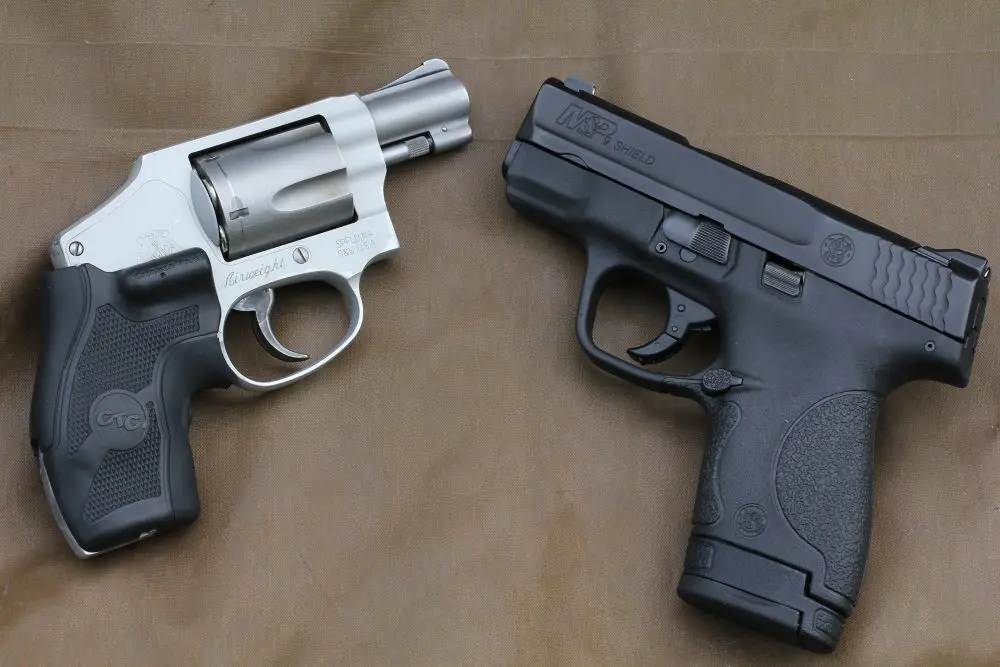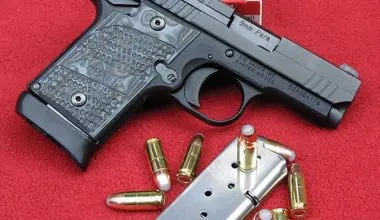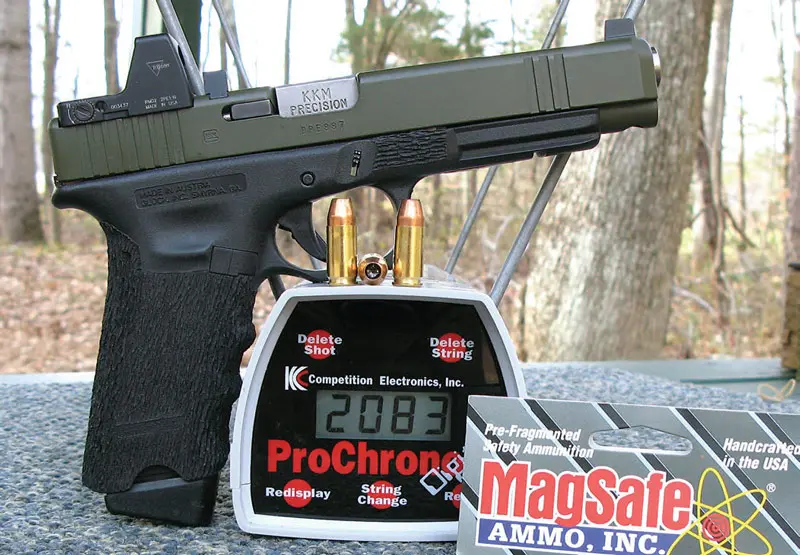
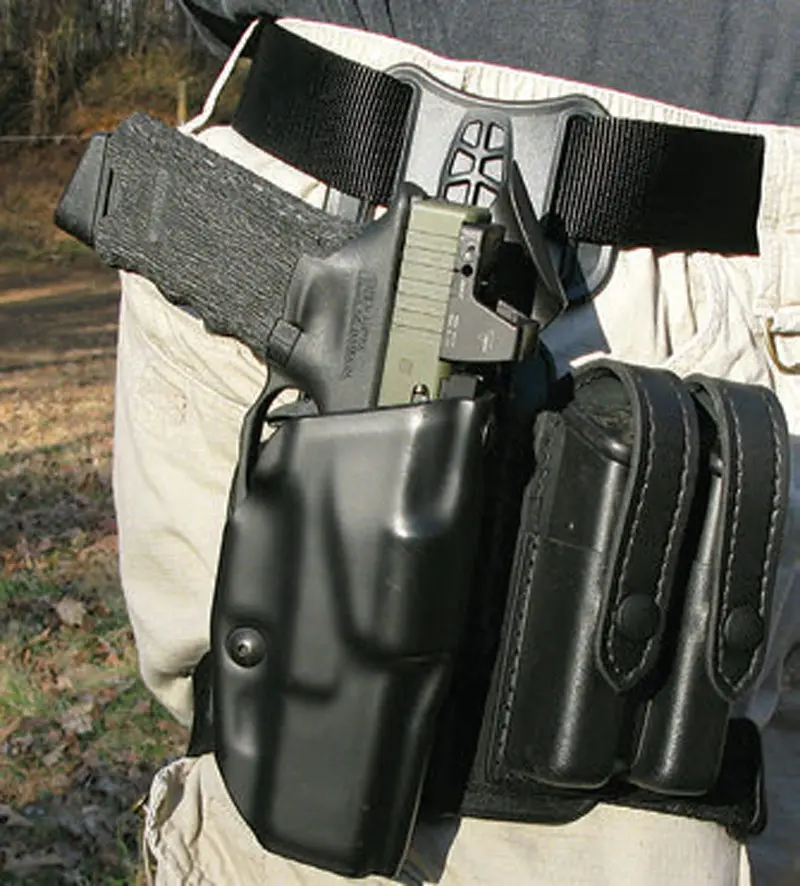
Early American warrior and hero Jim Bowie, who hailed from the Deep South and Texas, became a legend after his bloody Sandbar brawl near Natchez, Mississippi in 1827.
Bowie, who was a second in a bloodless duel, was attacked by the opposition’s friends. He was shot twice, bashed in the skull so hard with a discharged pistol that it broke, shot at and missed, but subsequently stabbed in the chest with a sword cane. When his assailant placed his foot on Bowie’s chest to recover his blade, Bowie pulled him down and ripped open his stomach with what many think was an early Bowie or large butcher knife. Still impaled by the sword cane, Bowie was stabbed and shot again. He spun around and nearly severed one of his attacker’s forearms before hostilities ended. The ten-minute battle left two men dead and four wounded.
Bowie miraculously survived this and many other large and small battles. While sick in bed at the Alamo, he was murdered by Mexican troops.
The Bowie brawl is an excellent example for police officer survival—not giving up but continuing to fight in spite of serious injuries and against what appeared to be insurmountable odds.
Table of Contents
BOWIE TACTICAL
Although a rarity among rare men and not easily replicated in modern society, Bowie fortunately passed on his warrior genes to a contemporary warrior, his distant relative, David Bowie, founder of Bowie Tactical and lead instructor at the Tactical Defense Institute (TDI).
Bowie, like his pugnacious predecessor, has fashioned his own highly efficient and contemporary defensive weaponry that encompasses both practical and tactical attributes with very cool high-speed, low-drag looks. Impressed by reports from credible special operations sources praising his work, and involved in a pistol reflex sight project with optical sight leader Trijicon, I asked Bowie to upgrade my Glock 34 pistol specifically for employment on tactical operations.
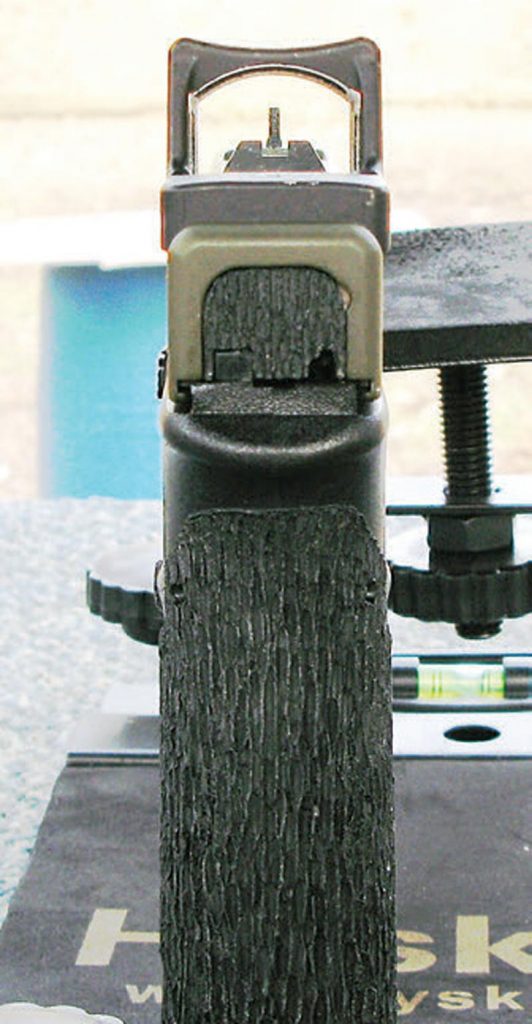
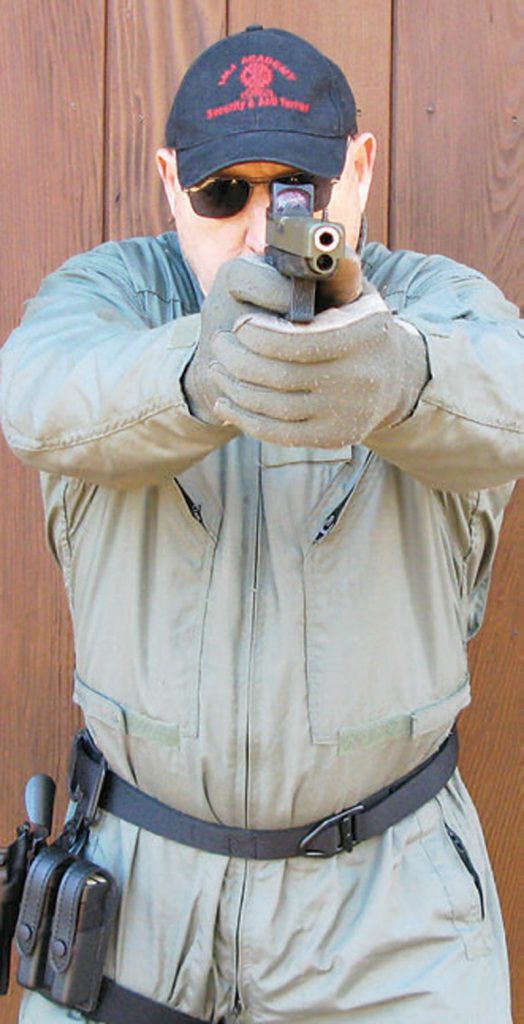
BOWIE G34
At 23.4 ounces empty, the Bowie Glock 34 (BG 34) has gained a mere .48 ounces after acquiring the U.S.-made Trijicon RMR (Ruggedized Miniature Reflex) sight and co-witnessing Ameriglo Suppressor BUIS (backup iron sights). Due to lack of rear slide space, the dovetailed rear BUIS has been moved forward of the Trijicon. Nevertheless, sight radius remains at 5.5 inches, an inch shorter than a stock Glock 17. Complementing the RMR, the BUIS were dead on at 25 yards.
The aluminum-housed Trijicon RMR 02 has an eight-minute red dot that I felt was the best compromise for CQB and more distant engagements. A Lithium battery designed to last up to two years during normal use powers the rugged optic. Other LED models with adjustable brightness settings can extend cell life to four years, and the RMR 05 employs a fiber optic that automatically adjusts its brightness to varying light conditions. RMRs are waterproof to a depth of 66 feet.
1911 GRIP ANGLE
Bowie slimmed down and recontoured the Glock’s grip angle to that of a 1911. A number of private entities offer this popular alteration of grip geometry, and I respectfully invite Glock to take note.
With extreme patience, Bowie laboriously stippled all gripping surfaces, including forward thumb rests, slide cover plate, trigger guard, and the extended magazine release with a deep lizard-like pattern that is oddly attractive as well as offering superior purchase on the Glock. The stocks were further modified to include port and starboard half-moon cutouts for recalcitrant magazine extraction.
The slide was embellished with forward cocking serrations and finished in a rugged, non-slip OD green ceramicbased coating. All slide edges and the ejection port were radiused. The port was also rounded fore and aft. The chamber entry was slightly reshaped and throated, and the feed ramp and chamber polished. Nothing affecting reliability was overlooked, and the lower edge of the extractor was radiused, so its edge does not dig into the case during feeding.
Bowie’s full-house treatment has created a new shooting experience with the Glock.
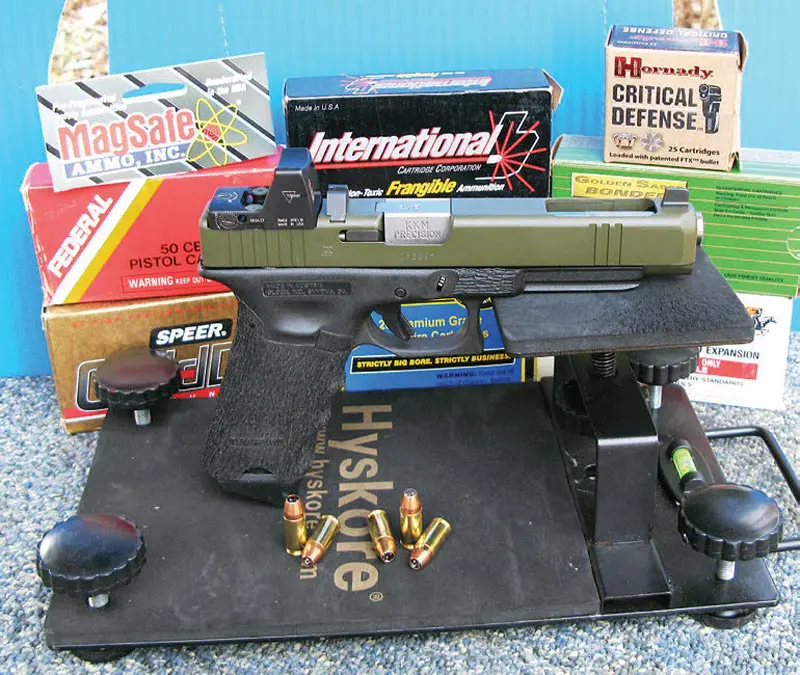
OTHER UPGRADES
A number of my shooting buddies who work for three-letter agencies have upgraded their Glocks by adding fully supported drop-in 416 stainless steel KKM Precision barrels with button rifling. These tubes not only offer excellent accuracy, but will digest anything from reloads with lead bullets to indigenousmanufactured ammunition if necessary— and that kind of flexibility is desirable when operating OCONUS.
To put the icing on the combat cake, one of Jeff Wilson’s super smooth custom triggers from GlockTriggers.com was added to the enhancement mix. I have found that his trigger almost eliminates take up, shortens reset, and substantially reduces my tendency to “milk” my shots to my support side during rapid fire. His triggers change everything for the better, and he has recently teamed with former Force Recon Marine and respected firearms trainer Travis Haley to produce Glock “Skimmer” triggers.
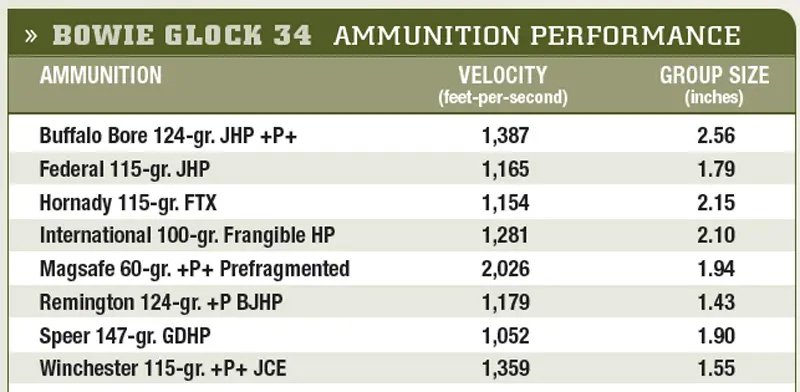
RMR ADVANTAGE
In the two current theaters of military conflict, infantry hit ratios are up dramatically. While training continues to improve, it has been readily acknowledged by commanders that the addition of optical and reflex sights on rifle/ carbine platforms has largely been responsible for this dramatic uptick in small-arms kills.
While training and practice are required to transition from irons to RMRs, the efforts will be rewarded by increased accuracy and speed of target acquisition— especially at extended ranges. The optic increases the service envelope of the pistol, and engaging threats beyond 50 yards—as in an active shooter at the end of a long school hallway—is quite feasible.
A comparative iron and reflex sights study that Trijicon commissioned at Norwich University with inexperienced student shooters amply demonstrated the bullet placement and improved hit ratios advantages of the RMR over traditional sights.
I am a neophyte RMR shooter and do not use Glocks on a regular basis. In my own limited study, I executed nine different accuracy and speed drills and determined that the RMR improved my accuracy (hit ratios) considerably, but my close target engagement speed, while slightly better with the RMR, remained virtually the same. However, my extended range/target acquisition times improved by 5% over iron sights. I believe RMRs will be the wave of the future on service/concealed carry handguns. The only current obstacle to more widespread use is their relatively high cost.
HOLSTERS
At first blush, it would appear that holsters would be in short supply for the RMR-equipped pistol. It is true of tactical drop holsters, but not so true when it comes to belt scabbards. Looking through a foot-locker stash of leather and Kydex carry systems, I came up with Safariland’s simple but timeless 007 competition holster and Sidearmor’s superb Kydex belt rig. Both had ample clearance for both BUIS and RMR.
Safariland’s 6004 Tactical scabbard accepted the G34, but the rear BUIS prevented it from dropping deep enough into the system to engage the ALS locking system. Bill Rogers of Safariland informed me that they are working on their tactical rigs to accommodate RMR-enhanced handguns. Bill has done a good deal of work with RMRmodified pistols and feels the gun and sight combination’s time has come.
Blade-Tech is a leader in the Kydex carry system field and offers both belt and drop thigh situated SWAT holsters for the RMR and specifically under-barrel Surefire X300 white light equipped G17/G22 pistols. They will also accept G19 and G23 pistols with additional space left for the longer barreled pistols. Although the sights are quite rugged, these gun gloves have a unique hood that encompasses the RMR and further protects it.
DISAPPOINTING ACCURACY
On a prior shoot with this system, I fired two consecutive groups of 1.47 inches and .84 inch from 50 yards and 25 yards respectively from a handheld HySkore rest with Federal 115-grain JHP ammunition.
Subsequently, I entered the following tests with a great deal of optimism, but while the results were nothing to be ashamed of, I failed to record any more sub-MOA groups at 75 feet. Of the eight loads tested, Remington’s 124-grain BJHP delivered the tightest cluster of 1.43 inches.
CARBINE VELOCITIES
The 60-grain MagSafe screamed across the chrono’s sky screens at a high individual velocity of 2,083 fps. The prefragmented round penetrated the frontal layers of a doubled-over Level II Kevlar vest, but did not pass through its rear panels. However, at 578 foot pounds, its payload imploded and fused together, becoming a solid projectile. Upon impact, it expanded to .67-inch and punched a large blunt trauma hole through the rubber mat backing, which sent it flying downrange. In the G34, all loads, both hot and mild, were quite controllable, with standard pressure Hornady and International rounds very pleasant to shoot.
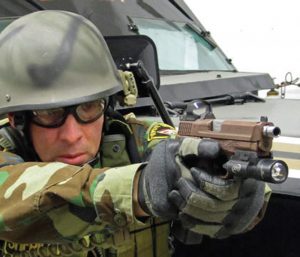
CLOSE-QUARTERS SHOOTING
The stock G34 is a well-balanced pistol and handles even stiff loads well. With the RMR and accompanying Bowie upgrades, KKM barrel and especially the Glock Triggers, the pistol has taken on a newer and more sophisticated personality. Control with hot ammo is excellent, and accuracy has been enhanced with the barrel/trigger combination.
For me as an old 1911 gunner, the pistol’s new ergonomics, which mimic the Government Model, make pointing it more intuitive. With continuing practice, the red dot is appearing on target more rapidly and reindexing at shorter intervals, so my speed shooting at interrogation distances is improving.
COLD WEATHER
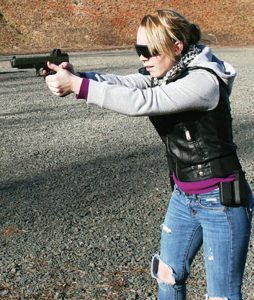
Muzzle velocities often decrease in cold weather. The only exception to this has been LeMas’ proprietary loaded handgun ammunition, which actually seems to accelerate in lower temperatures. Kydex holsters also stiffen and become a little more reluctant to release their cargo. It’s also well known that metal- and carbon-shafted golf clubs lose distance whipping flexibility when lips turn blue. Fiber bows seem to be another matter, and I have not been able to find a definitive answer on the effects of winter conditions on their performance.
However, owners of striker-fired pistols, please take note. After placing my Bowie Glock in the freezer overnight to ascertain the RMR’s resistance to icy conditions, I checked its trigger pull and it was at least a pound heavier than it was at room temperature. Metal stiffens in the cold, but I know that lubricants that find their way into the firing pin channel and are present on other metal surfaces play a big role in affecting performance and reliability.
The Korean War is the best example of firearms freezing up, but I have not heard that complaint among troops in Afghanistan.
As far as the RMR is concerned, the red dot was on but could not be identified because of severe lens surface fogging when exposed to indoor conditions. Since the BUIS were blocked by the RMR, they were useless. I would have to rely on pure point shooting to engage a threat.
LUBRICATION
Glocks need very little lubrication, and with RMR sights it’s best to keep it that way. Excessive lubrication will find its way onto the lens during the firing cycle and speckle it. When this occurs, water should be used to flush the optic lens, then dry it with a clean, soft cloth. I use a saturated Q-Tip® followed by a dry Q-Tip or camera lens cleaning cloth. Scratching the lens must be avoided.
CONCLUSIONS
A nagging problem that persists in law enforcement shootings is poor hit ratios. Statistics vary from jurisdiction to jurisdiction, but errant rounds in the community pose a myriad of problems that are incumbent upon the police to resolve.
Better training and more frequent qualifications and in-services help, but another element must be addressed, and that is making the service sidearm as user friendly as possible. Industry has responded with better triggers, superior ergonomics, and the flexibility to adjust handgun stocks to accommodate any size hands to facilitate a proper grip.
Bowie’s work certainly enhances the G34’s already good ergonomics, but the miniaturized optical reflex sight represents the next step in improving officer hit ratios. Its time has come, and the use of less expensive materials and mass production should soon place these sights within reach of every police department and serious self-defense shooter.
